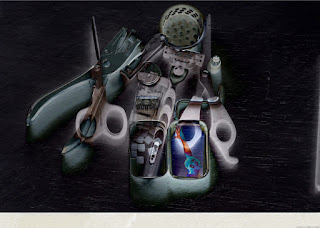Solidarity, exclusive identities and the erosion of the public sphere
In the first quarter of our century, tensions seem to be increasing. Societies are torn between centrifugal forces that try to bring people together in solidarity, and centripetal forces that scatter people’s intentions, leaving behind social antagonisms. Needless to say, this is a very broad and general problem, with multiple variants and facets, and with manifestations at the family, community and social level.
During the pandemic, we have seen how, at the family and community levels, people are capable of solidarity when confronting the disease. Their resilience was anchored in solidarity’s supportive behaviour, in the absence of which the human tragedy would have been even more devastating. The problem gets harder to overcome when we approach the issue at the macro, social level.
It is at that macro level that human groups become anonymous masses. It is then when there are greater possibilities that a “they” and a “us” mentality emerges. Mainly because “the others” cannot be recognized through direct and palpable contact, but in a mediated way, with narratives tainted by ideologies, prejudices and misunderstandings.
Today, this mediatization of the other is exacerbated by networks and the endless number of virtual groups and communities that are formed in that sea of information, misinformation, hate speech, conspiracy theories, etc. The result is a fragmentation of identity that makes it difficult to appeal to solidarity as the basis for long-term collective projects. Moreover, there is a constant battle of qualifications and disqualifications that neutralize or destroy even the most legitimate voices of those that want to truly engage in a constructive enterprise.
Politics is one of the areas most affected and, in turn, most affected by this phenomenon. The new political tactics that occupy the media space insistently point to the formation of narratives anchored in the friend-enemy binomial. What in other times was establishing the difference between one force and another by referring to public policy, today is being left aside in favour of a “we” and a “they” narrative. Such antinomies can be based on more general identities such as religion, ethnicity and nationality, or on more specific ones such as those who believe in animal rights and those who do not.
In fact, the great challenge for electoral campaigns today is to be able to, on the one hand, create multiple dividing lines, and, on the other, add them up in one's favour. These amalgams are created to produce transient electoral majorities. This tactic works in the short term, but runs in detriment of more substantive programmatic constructions that give politics its long-term transformative edge. With the additional danger that when these amalgams are built on exclusive identities that disqualify the other, it is more likely that the polarization that arises in each electoral period will turn into an endemic polarization that prevents any reconstruction effort.
These dynamics can be doubly destructive in historical moments like the ones we are going through. In this new Latin American political cycle that is making its way, major reforms will be unavoidable if we want to tackle issues such as inequality, the pandemic or climate change. Today, solidarity does not only involve helping the neighbor or the brother, but must be projected in much more complex measures such as the fiscal pact, the strengthening of social protection systems, the transition to a green economy, multiculturalism, the recognition of diversity, among others. All this, respecting democracy and public liberties.
Politics can no longer go along with the game of identity fragmentation by rewarding transactional political management. It ought to leave aside the war games, promoting leadership capable of recovering notions such as “the public interest”, “the common good” or the “general will”. Terms that today are received with enormous skepticism and disaffection, precisely because the public sphere is infected by the same virulence that afflicts the world of fragments.
Drawing a new roadmap for the State in Latin America requires a double effort if it is to pass through. The leaders that are taking hold of the polity during the new cycle cannot fail to note that the times are not "normal". There is a necessary elevation of political craftsmanship.The names that are already on the path to direct the new cycle, be it Guillermo Lasso in Ecuador, Pedro Castillo in Peru, Gustavo Petro or Sergio Fajardo in Colombia, Lula and others in Brazil, will have to govern with another paradigm and above all leave aside all temptation of caudillismo , relying on teams, evidence-based public policy and strategic thinking, in order to counteract fragmentation. The unknowns are innumerable and the margin for action extremely narrow, if we want to recover that centerpiece of solidarity that will allow us to overcome the challenge.

.jpg)
.jpg)

Comentarios
Publicar un comentario